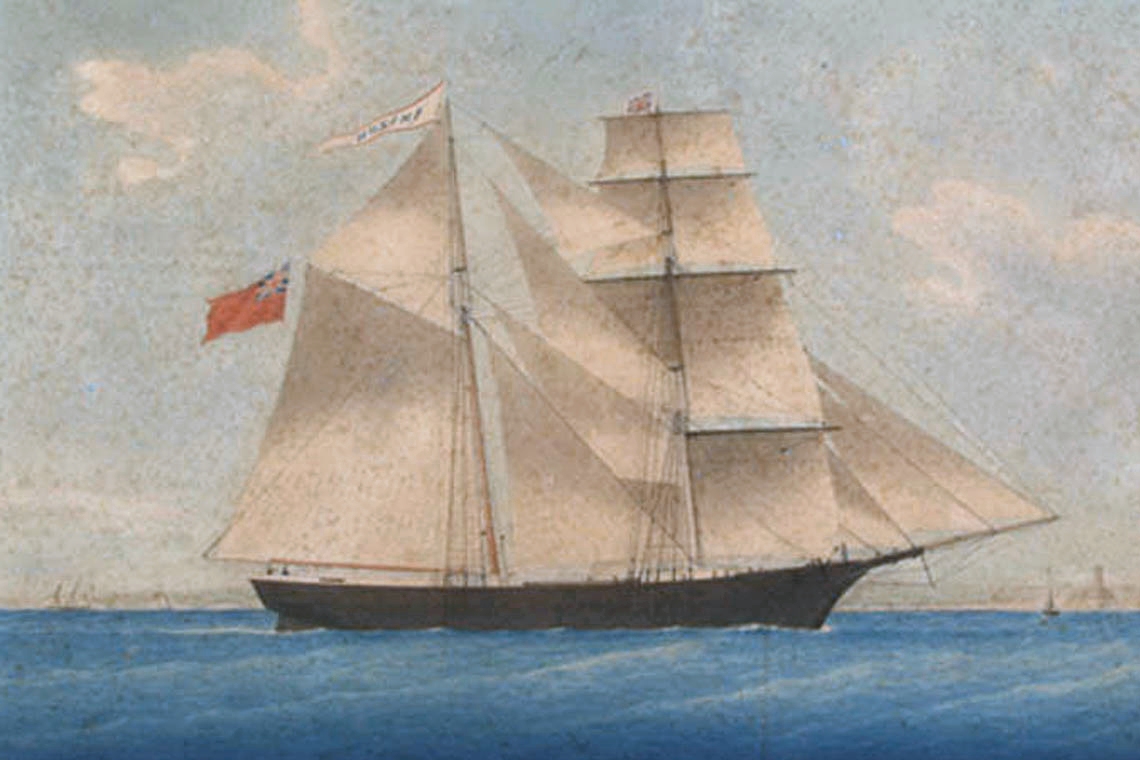One of the books I remember reading long ago was Patricia Lauber’s Famous Mysteries of the Sea. You can still find used copies of it for under ten dollars. It included a description of the disappearance of the Waratah, a steamship lost without a trace of crew or passengers or ship in July 1909 off the coast of South Africa. Another chapter described the Asiatic Prince cargo liner that disappeard in the Pacific in 1926. People are still looking for this one: it had a huge cargo of sliver bullion aboard.
But the story that captured my imagination and haunted me for years was the loss of the Mary Celeste, an American-registered brigantine or sailing ship originally named Amazon. Unlike the Waratah and the Asiatic Prince, which probably sank in a storm or from an onboard accident, the Mary Celeste didn’t sink. It was found adrift several hundred miles out to sea west of Spain on December 4, 1872, mostly undamaged, with its cargo intact, its log up to date through November 25, its galley equipment neatly stowed, and ample provisions in the locker. The sails were a bit tattered, indicating that it had been adrift for several days, in accord with the last log entry, but otherwise it was in good shape.
Missing were the crew, the ship’s registration papers, the captain’s navigational instruments, and a lifeboat. Something had happened aboard the Mary Celeste, but slowly enough that the passengers and crew were able to make an organized departure. They never reached their own goal. The British Admiralty and the Chief Justice of Gibraltar oversaw the salvage investigations, which were quite thorough. They examined the ship, its provisions, its last position according to the log (still onboard), the location where it was found. Eventually the authorities released the ship to its finders for salvage.
No one has ever discovered what happened to make the crew abandon ship, or what happened to them afterward, although there have been many proposals from mutiny and murder to natural events including earthquakes and tsunamis. But we don’t have enough solid data to support one over the other.
One of the most humbling experiences for a scholar is the moment he or she realizes that there are things one simply does not know, and that may never be known. We want to know the truth, the whole truth…but sometimes we have to make do with a best guess. The truth may be out of reach.

